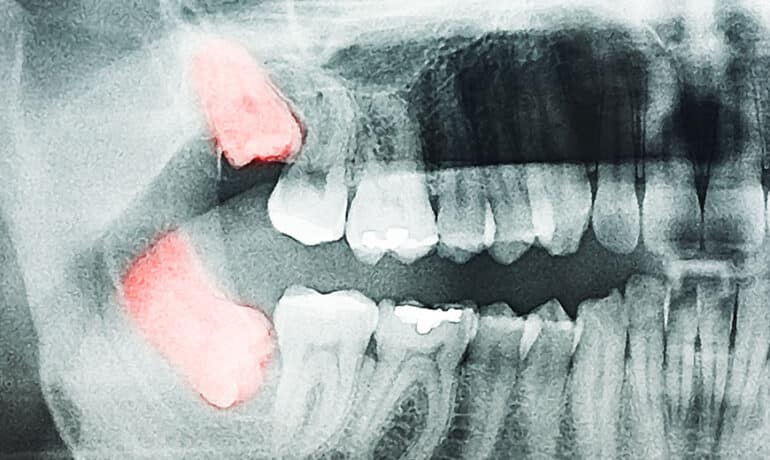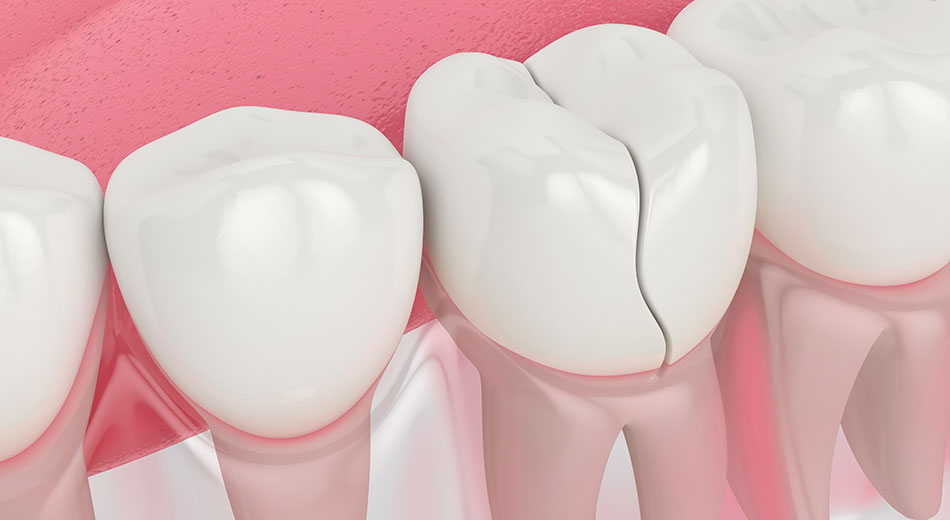Understanding Wisdom Teeth and the Causes of Impaction
Wisdom teeth extraction is a necessary procedure to safeguard your oral health. This dental surgery becomes essential when wisdom teeth are impacted, causing pain and potential damage to adjacent teeth. Impacted wisdom teeth can also lead to jaw overcrowding and infection in nearby tissue. In some instances, extraction may be recommended if wisdom teeth grow at angles that pose a risk to other teeth or if they have decay that cannot be treated with fillings or other restorative procedures. By removing these problematic molars, you can prevent more severe issues in the future and ensure your overall dental well-being.
Reasons for Extraction
When wisdom teeth become impacted, they can cause overcrowding of the jaw, pain, infection in nearby tissue, and potential damage to other teeth. In these cases, it may be best to have them removed before any further issues arise. Wisdom tooth extraction may also be recommended if the teeth are growing at an angle that could cause harm to other teeth or if they have decay that cannot be treated with fillings or other restorative procedures.
The Benefits of Wisdom Tooth Extraction
Although wisdom tooth extraction is a surgery, it can provide many beneficial effects. After the procedure, patients may experience improved oral hygiene, decreased pain or discomfort due to overcrowding, and increased dental health. Additionally, removing wisdom teeth may help prevent any potential decay or damage to other teeth caused by impacted wisdom teeth.
Steps Involved in the Procedure
Wisdom teeth extraction typically begins with a dentist or oral surgeon consultation. During this appointment, the dentist will carefully examine the mouth and take X-rays to precisely determine the position of the impacted teeth and the surrounding bone structure. Once the teeth’ positions are established, anesthesia will be administered before proceeding with further steps.
Next, an incision will be made in the gum tissue to create access to the wisdom tooth. In some instances, removing a portion of the bone may also be necessary to gain better access. Subsequently, the impacted tooth will be gently extracted from its socket using specialized dental instruments, such as forceps or elevators. Any remaining fragments of the tooth can be removed during this process.
Once all wisdom teeth have been removed, stitches may be used to close any incision sites, aiding in healing and reducing discomfort. Gauze may be packed into the area to control bleeding and promote clotting. The duration of the procedure typically ranges from 1 to 2 hours, depending on the number of teeth extracted and other factors.
Wisdom tooth extraction is a standard procedure that can significantly enhance overall dental health by addressing problematic or impacted teeth before they potentially lead to more serious issues in the future. It is crucial for individuals considering this procedure to consult their dentist beforehand, allowing them to understand the procedure thoroughly and have realistic expectations regarding the recovery period.
Pain Management After the Procedure
After wisdom tooth extraction, managing the pain for a smoother recovery process is crucial. You can follow your dentist’s recommendations and take the prescribed medications to alleviate discomfort. Applying a cold pack to the affected area can provide soothing relief. To further aid in pain management, consuming soft foods that are easy to chew and gently rinsing your mouth with warm salt water can promote healing and alleviate any lingering discomfort. By incorporating these measures into your post-extraction routine, you can ensure a more comfortable and speedy recovery.
Risks associated with not extracting impacted wisdom teeth
If wisdom teeth are not extracted, they can pose numerous risks. Over time, impacted teeth can crowd the jaw, leading to pain and infection in surrounding tissues. Additionally, angled growth can damage adjacent teeth and exert excessive pressure, resulting in cracks or weakening. Neglecting treatment can exacerbate these issues, necessitating more extensive procedures. Furthermore, untreated, impacted wisdom teeth can cause misalignment and hinder proper brushing and flossing due to overcrowding. Bacteria trapped around the molars can also lead to decay in healthy neighboring teeth, potentially leading to gum disease or other oral health complications. Therefore, individuals should seriously consider wisdom tooth extraction to minimize the potential risks of leaving them untreated.
In conclusion, extracting wisdom teeth is a standard procedure that can significantly enhance overall dental health by addressing problematic or impacted teeth before they lead to more severe complications in the future. It is imperative for individuals considering this procedure to consult their dentist in advance, allowing them to comprehend the process and anticipate the recovery period fully. Effective pain management post-extraction is also vital for minimizing discomfort and facilitating the healing process. Should you have any inquiries regarding wisdom tooth removal or wish to schedule an appointment with one of our experienced dentists, please do not hesitate to contact us today!




